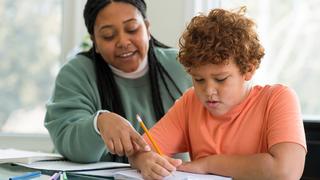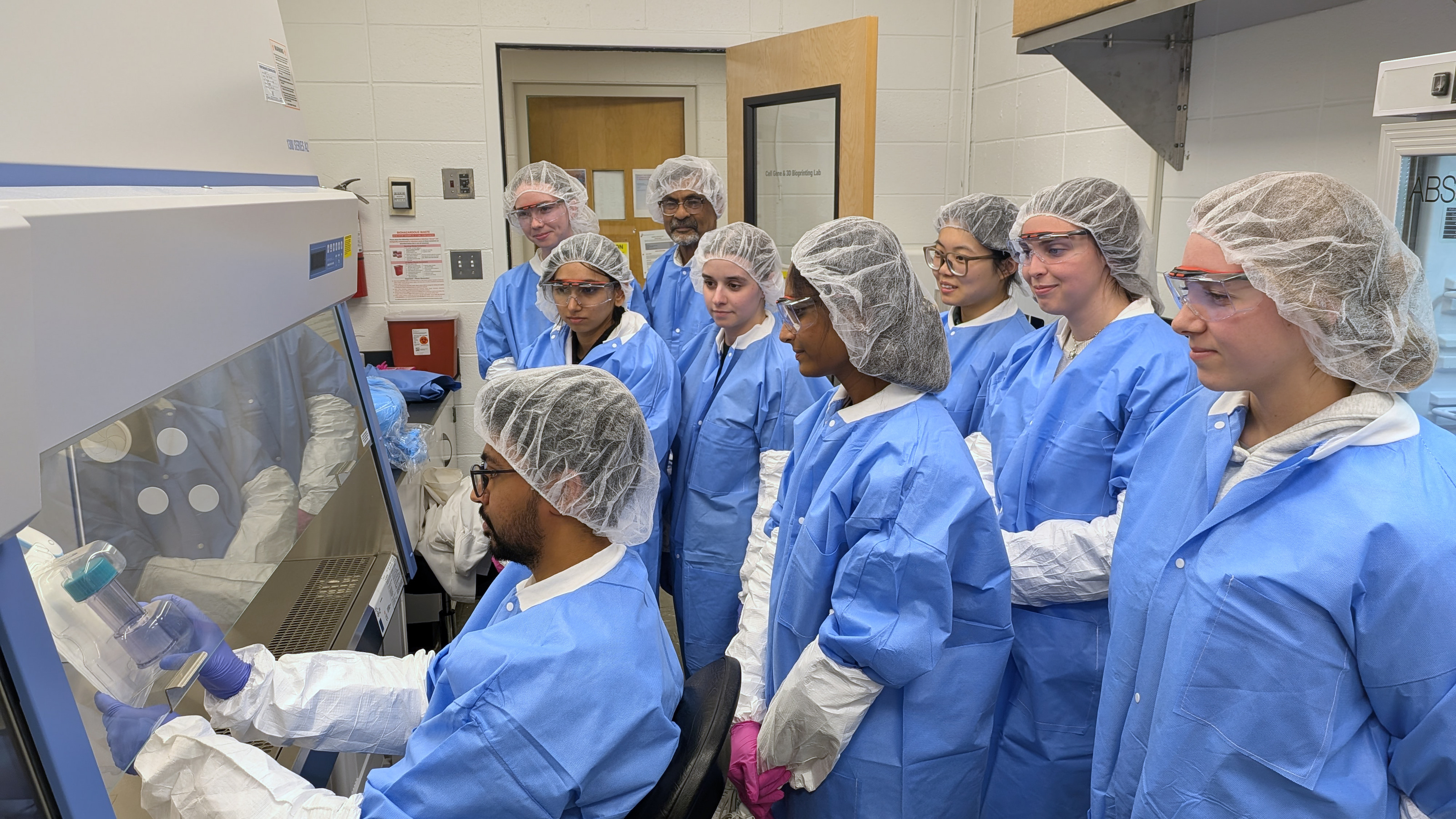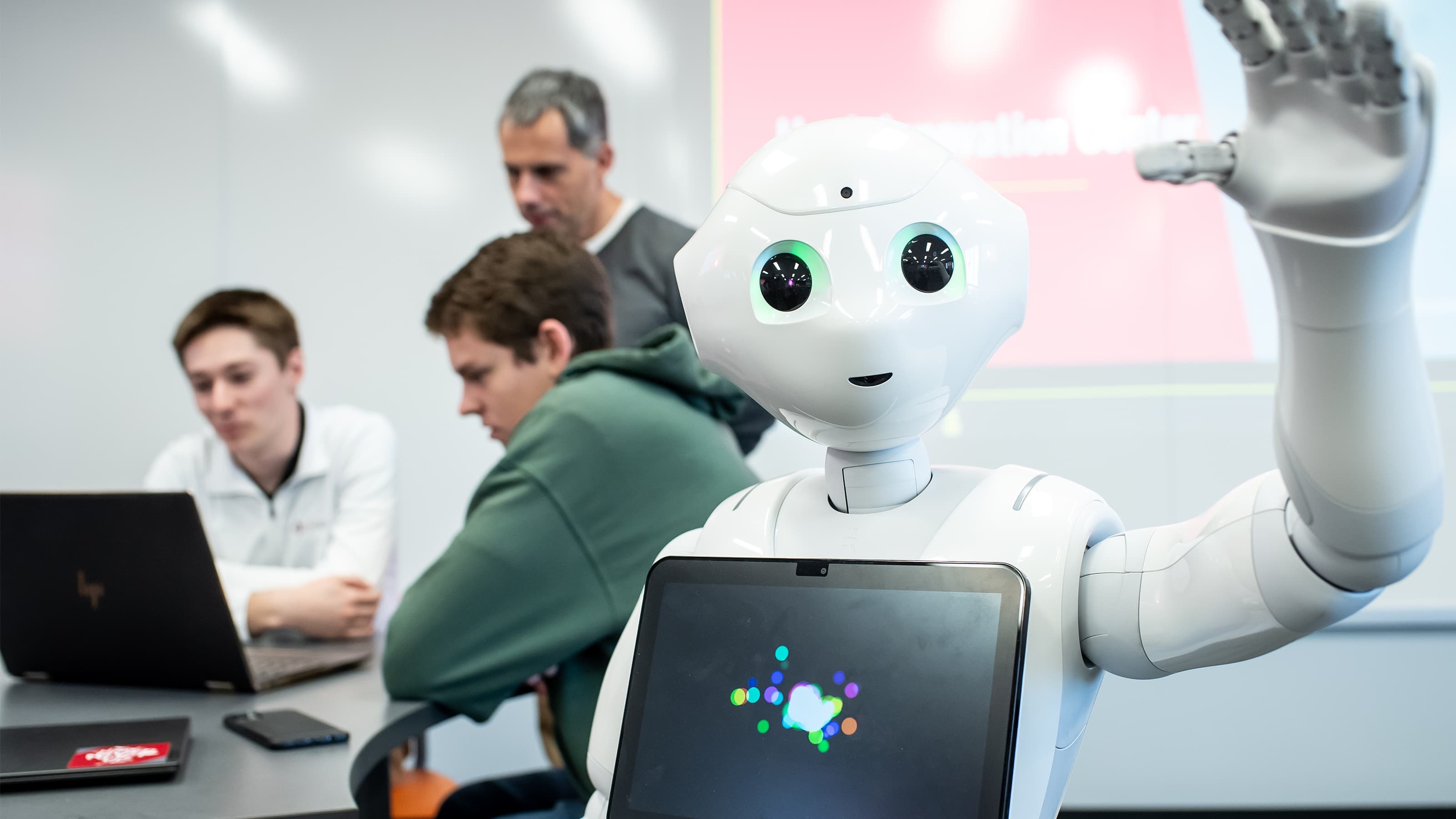Investing in the Science of Reading
Jackie Galbally, PhD, assistant professor of special education, has been working with two Philadelphia charter schools to improve literacy rates and educational outcomes among elementary school students. Her work and research involves Saint Joseph’s undergraduates who are student teaching in these classrooms.

In 2019, just 17% of students attending Philadelphia public schools reached reading proficiency by fourth grade.
That’s significantly below other similar-sized urban districts in the country. And learning loss that students have suffered amid the coronavirus pandemic only amplifies that problem, Josh Power, EdD, dean of the School of Education and Human Development, says.
“When you layer that post-pandemic learning loss on top of the challenges that our students living in poverty face, it can really exacerbate the educational inequities that these students and these communities are facing,” he says. “That really creates a new crisis within an existing crisis.”
Jackie Galbally, PhD, assistant professor of special education, is working toward solving that problem. With grant funding from the Emily Hall Tremaine Foundation, a nonprofit that benefits innovative projects that advance solutions to enduring problems, and the Hamilton Family Charitable Trust, committed to funding educational opportunities for children, Galbally and her undergraduate students have been implementing Science of Reading pedagogy in two elementary schools within the Mastery Charter School network since January 2021 — an approach that’s been receiving national attention.
The Science of Reading framework is data-supported pedagogy, which includes practices that get to the bottom of the complex set of skills involved in word recognition and language comprehension that result in a child learning how to read.
There's a lot of ambiguity around how elementary educators teach students how to read, but currently the Science of Reading is bested by Balanced Literacy approach, which is used by 72% of elementary special education and K-2 teachers who responded to an Education Week survey. Balanced Literacy is a holistic approach that balances explicit language instruction with independent learning and language exploration. However, despite its popularity, there is inconclusive evidence of its efficacy in literacy instruction.
“The reality is, (undergraduate students) are not going to go into schools when they graduate from here where the Science of Reading is likely going to be alive and well and thriving,” Galbally says.
It's really respecting the individual and where they are with their knowledge of reading and working from there, as opposed to sort of pushing them into where the curriculum expects them to be.
Jackie Galbally, PhD
Assistant Professor of Special EducationFor three semesters so far, Galbally and 10 student teachers have worked in two Mastery Charter schools, one in West Philadelphia and one in North Philadelphia, using a design-based implementation research style with the Science of Reading framework, meaning that researchers and practitioners work together to address practical problems of teaching and learning.
Galbally says that the partnership is twofold: the elementary students benefit from improved literacy instruction, and Galbally’s students benefit from witnessing school leaders and teachers making evidenced, informed changes to a literacy model — a process that is complicated, nuanced, and takes time and cooperation from a variety of stakeholders.
She and Nancy Scharff, a Saint Joseph’s graduate and a consultant with the Read by 4th, Philadelphia’s literacy campaign, co-created a tool called the Dynamic Early Literacy Framework (DELF), which guides schools in implementing Science of Reading pedagogy. There are seven framework drivers, including school culture and leadership, assessment, data analysis, staffing and scheduling, supervision, evaluation and coaching, and family and community engagement.
“So, seven different drivers, and really understanding when we’re implementing change in these schools, how that really goes within each of those drivers,” Galbally says. “We have to understand what the domino effects are of these changes.”
It’s going beyond adopting a new reading curriculum and training teachers to adhere to it, which she says districts have tried, with not a lot of follow through.
Galbally says that the Science of Reading approach to teaching works in tandem with the schools’ existing culturally responsive teaching approach.
“It's really respecting the individual and where they are with their knowledge of reading and working from there, as opposed to sort of pushing them into where the curriculum expects them to be,” she says.
After this semester, Galbally says, she and her partners will analyze the data they’ve collected so far and use that to inform their work in the Mastery Charter schools next fall.
And for Power, Galbally’s work in improving education outcomes for Philadelphia students is a model for creating future community partnerships.
“As an educator preparation program, we are committed to preparing students to work in diverse learning environments, including in urban public schools and charter schools, the kinds of schools that Jackie’s working in and we see our students participating in in their field experiences and student teacher placements,” Power says.



